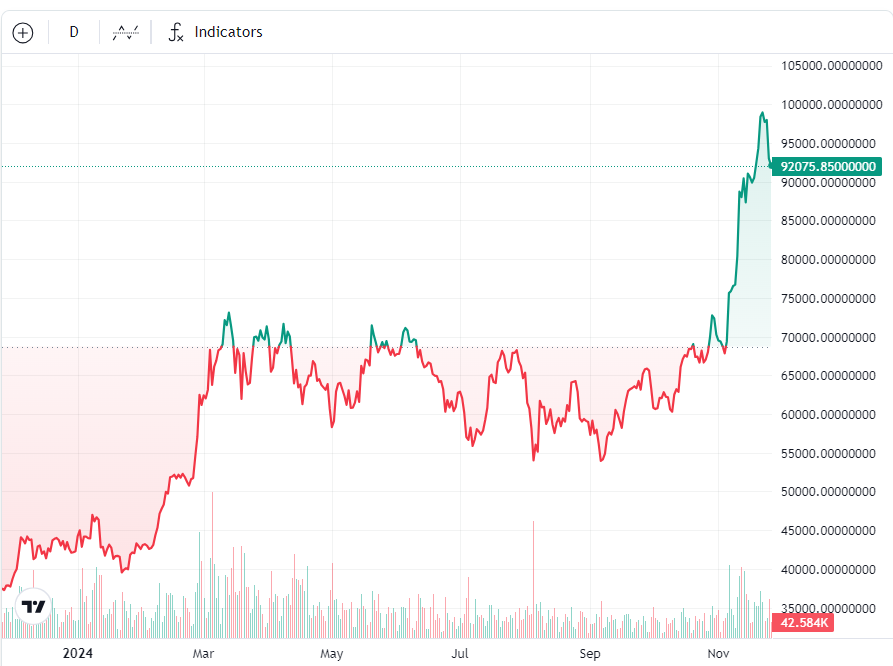More countries are developing crypto regulatory frameworks based on Europe’s upcoming MiCA regulations.

Morocco is reportedly moving toward the legalization of cryptocurrencies, reversing a nationwide ban imposed in 2017.
Central Bank Drafts Crypto Legislation
According to Reuters, Morocco’s central bank, Bank Al-Maghrib, has prepared a draft law for regulating cryptocurrency, which is now under review.
Abdellatif Jouahri, governor of the Moroccan central bank, announced the announcement, who stated, “[We have] prepared a draft law regulating crypto assets, which is currently in the adoption process.”
Despite the ban on Bitcoin and other digital assets in 2017, a significant portion of Morocco’s population continues to hold cryptocurrencies, suggesting that enforcement of the prohibition has been challenging.

The news coincides with renewed global interest in Bitcoin, which nearly reached the $100,000 mark for the first time on November 22, coming within $200 of the milestone.
Morocco Explores a CBDC
The central bank is also investigating the potential benefits of a central bank digital currency (CBDC). Jouahri remarked,
“Regarding central bank digital currencies, and like many countries around the world, we are exploring to what extent this new form of currency could contribute to achieving certain public policy objectives, particularly in terms of financial inclusion.”
CBDCs operate on permissioned blockchain networks managed by central authorities, unlike decentralized blockchains such as Bitcoin or Ethereum.
Global Push for Crypto Regulations
Morocco’s shift comes amid a broader global trend of developing cryptocurrency regulations.
The UK’s Financial Conduct Authority (FCA) recently outlined a roadmap to regulate crypto by 2026, driven by a report that over 12% of UK adults now own digital assets.
Meanwhile, the European Union is finalizing the implementation of the Markets in Crypto-Assets Regulation (MiCA)—the world’s first comprehensive crypto regulatory framework—which is expected to take effect by the end of 2024.
Morocco’s growing interest in cryptocurrencies highlights the influence of global regulatory advancements and the increasing adoption of digital assets.
